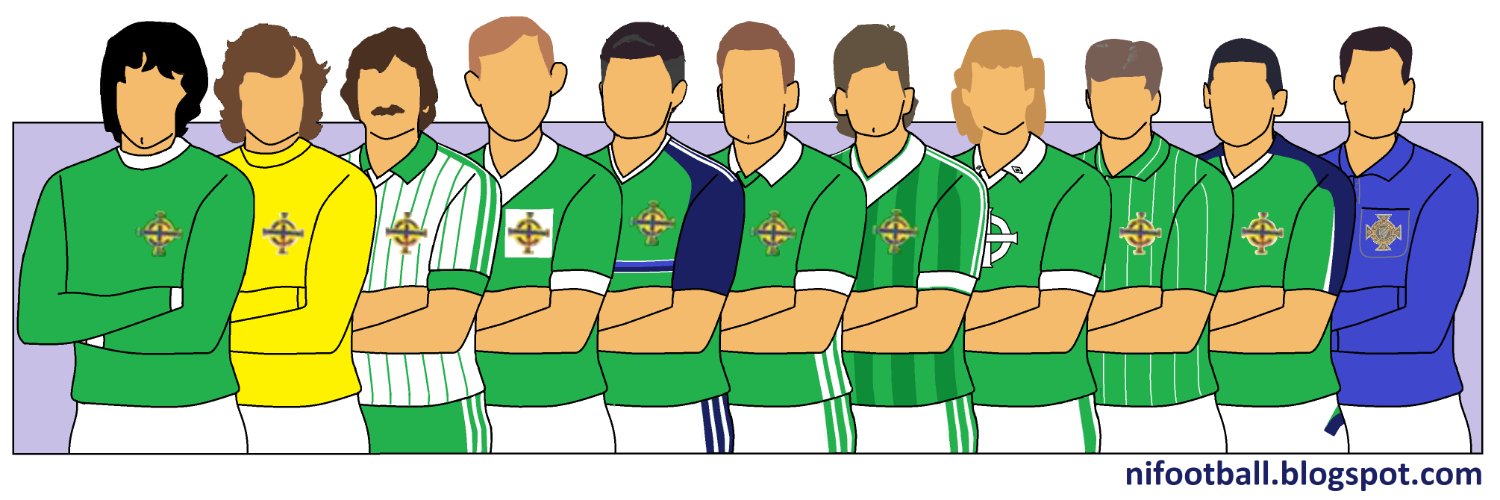No matter what we believe is "real" football, rugby union was here first. Trinity College's team was founded in 1854 and the two original Irish Unions (the IFU in Dublin and the Belfast-based Northern Football Union of Ireland) were both founded in 1874, amalgamating in 1879 to form the IRFU as we know it today. That year, the first ever officially organised football match between Irish teams saw Cliftonville face Quidnuncs, a team of local rugby players, and the rugger players won 2-1.
As such, at least three (Billy McWha [Albion RFC/Knock FC], Alex Dill [RBAI/Knock FC] and James Hamilton [Knock RFC/Knock FC]) of the Ireland side that took the field for their first international in 1882 had played the handling game before the kicking game had even arrived on these shores. In those early days, other former rugby players to be capped by the Irish FA included Bill Morrow [Ulster RFC/Moyola Park], Jack Henderson [Ulster RFC/Ulster AFC] and James Barron [Coleraine RFC/Cliftonville].
More recently evidence has emerged that Ireland's first dual-code international was William Eames. Capped at rugby against Wales in 1884 and in each of the following year's Home International football matches, all while attending Trinity College in Dublin.
As the two games became polarised along amateur = posh / professional = common lines a snobbery developed, particularly among grammar schools. Many gifted footballers found that once they had passed their 11+ they were forced to play rugby and/or actively discouraged from playing the game they loved. Two of Northern Ireland's greatest players, George Best and Keith Gillespie were noted critics of their schools' policies. Norman Clarke missed out on at least one youth cap as he was withdrawn from a match against Scotland in 1959 to play a schools rugby match.
Others however combined both games successfully while at school. Dave Clements won Northern Ireland schoolboy, youth and amateur caps while still representing Larne Grammar on the rugby field. More recently Nevin Spence played right-back for Northern Ireland schoolboys while attending a strong rugby school, Dromore High. He then concentrated fully on rugby, playing for Ulster and Ireland Wolfhounds before his tragic early death.
 |
| Hammie Hewitt |
As professionalism became accepted in "soccer", rugby was to remain a strictly amateur sport for another century. Many players loved both sports equally however, and were prepared to sacrifice any money that they could have made from playing football, just so that they retained the option of still taking to the rugby field. Hammie Hewitt [Instonians RFC/Linfield/Cliftonville] came from a rugby family - his brothers Frank, Tom and Victor were all capped by Ireland - and throughout his sporting days he balanced his career as Joe Bambrick's stand-in with Linfield and for Ireland Amateurs while also representing Ulster. Three of his nephews were also capped by the IRFU.
Another player who could surely have made an even bigger impact on the football field was Kevin O'Flanagan who's football career took him from Bohemians to Arsenal along with caps for Ireland Amateurs and Eire in parallel with representing Ireland and Leinster at rugby. Hugh Barr was another who refused to take football too seriously, remaining an amateur and teacher throughout a career that took him from Linfield's 7-trophy team to Jimmy Hill's Coventry Sky Blue revolution in the mid-60s while earning 3 full caps, B, Amateur, Youth, Irish League and British Olympic representative honours. His continued amateur status allowed him to return to club rugby when the mood took him.
 |
| Nevin Spence |
However, in my experience there remains three distinct groups - those who embrace football and rugby and those who love one and despise the other. Some of it definitely emanates from snobbery or inverse snobbery, some of it is masked by an annoyance with the "disrespectful" manner of modern-day football stars or the over-complicated/ever-changing rules that blight rugby. However, the disdain from my brother in-law that my gift of a Northern Ireland kit for my niece received could be the sort of thing that partially re-ignites my grammar school frustrations, though I still don't mind the odd night at Ravers/Spanners!



Comments